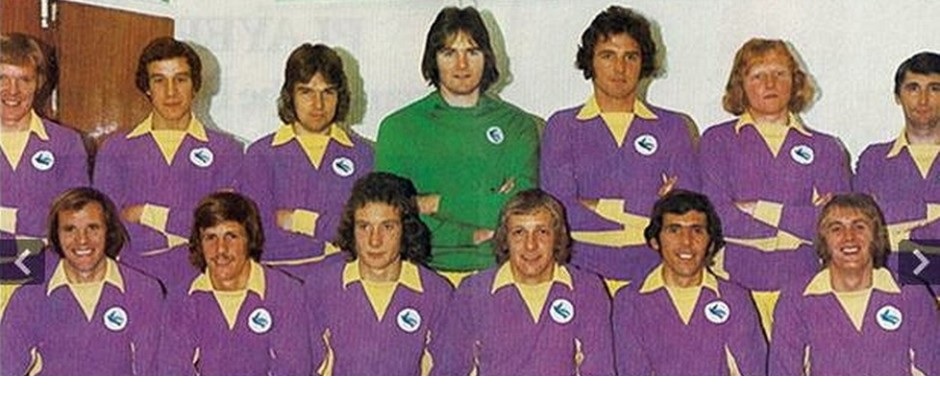
If you’d have told me back on the first of August that Cardiff City would be five points ahead of Sunderland going into Easter in the upcoming season, I would have assumed that we were not only right in the thick of the promotion Play Off scramble, but we may be in with a shout of a top two finish as well.
On Easter Monday last year, Sunderland came to Cardiff City Stadium and won a lot more comfortably than 1-0 suggests without really hitting the sort of heights seen in some of their televised games around that time.
Sunderland looked like a team on the way to a top six finish and they were my promotion picks from the Play Offs especially when they won the first leg of their Semi Final with Luton, but the Bedfordshire club with the ground from a hundred years ago have shown how resilient they are this season and were able to turn the deficit around on their way to their unlikely promotion about ten days later.
When Sunderland murdered Southampton 5-0 about a month into this season, another Play Off place or better looked on for them, but our smash and grab win at the Stadium of Light at the end of September was a warning of problems to come.
Since he threw his toys out of the pram after our defeat at Plymouth just over two months ago, I’ve become a serial Erol Bulut critic who won’t be bothered in the slightest if he and his so dull football is not here next season. However, I have to concede that when a stream I watched on You Tube not too long ago nominated us as the Championship’s biggest over achievers in 23/24, I struggled to come up with a better alternative (Ipswich were being tipped by some for a top two finish back at the start of the season).
The same stream had Sunderland down as the division’s biggest under achievers and as for reasons why this is probably correct, I can think of lots of injuries, proving that the grass is not always greener with their decision to get rid of a very competent and pretty successful Championship manager in Tony Mowbray, who I’d take here in a heartbeat, and proving that while Alan Hansen’s famous old line that you win nothing with kids isn’t always right, it usually is.
Ten years after deciding to give it up for life as I got close to entering my seventh decade, I’m back playing Football Manager again and, as I always did, I make turning my own team into a bunch of promising youngsters a priority – I do that because I enjoy playing the game that way and, in my experience, it tends to bring you success. However, the Sunderland hierarchy’s attempt to build their team in real life using my Football Manager method is proof that, despite said game getting very close to emulating the real thing in many respects, it certainly won’t be able to fully match it in my lifetime at least.
Anyway, enough of me blathering on, here’s the seven decades quiz back after the final international break of the season and I’ll post the answers on here on Saturday.
60s. This midfielder is the only man to have captained each of the big three North East teams (Middlesbrough, Newcastle and Sunderland). He played for Sunderland against City on many occasions with the last of them being a high scoring draw – can you name him?
70s. This defender’s birthplace may have meant that he had to work harder to win over the Sunderland supporters than other youngsters coming into the first team would have and one hundred and thirteen league appearances spread over the five years between his debut and him leaving the club suggests he was more of a squad member than a regular first choice. Nevertheless, his move took him a long way south and from the second division into the first. Again though, he was more a reserve than a starter in the first eleven and did not get to fifty league games for his new club before his retirement from the game at just twenty seven (Wikipedia makes no mention of it being injury related, but, presumably, it was). Going straight into coaching, he worked for the club he’d last played for and eventually followed his manager east where he had a go at taking charge of the team with his mentor overseeing things in a general manager type role. When this set up didn’t prove to be a success, things returned to normal with him working as an assistant to the established manager. His working life in football ended with him performing a variety of roles during a long spell at a London club which won its fair share of trophies while he was there, but who is he?
80s. Lane south lit by signs to Norwich in this defenders case. (5,7)
90s. This full back won the first of his forty six caps for his country in a 4-0 beating of France. The final seven years of his playing career was spent in England – he began in the Midlands before moving to Sunderland and he played more matches for them than he did for the other six clubs from that country he represented put together. After finishing up at a club now in the Conference North, he returned home to go into coaching and, at one of the clubs he worked for, he was suspended as first team coach for a time because he refused to sign a “special anti corruption declaration”, can you name him?
00s. Group Keith Chegwin turned down meets American comedy family from the 70s and wins seventy two caps!
10s. Did this much travelled midfielder who started off at Sunderland, spend all of his spare time preparing Mansaf?
20s. Charger meets Newcastle supporting Archbishop by the sound of it!
Answers
60s. It seemed that Stan Anderson would spend all of his career with Sunderland as he clocked up over four hundred league appearances for them over an eleven year period. However, not long after playing in a 3-3 draw with City at Roker Park in September 1963, Anderson joined Newcastle before a final season with Middlesbrough (who he later managed) in 65/66 gave him the chance to complete his unique hat trick.
70s. Newcastle born Mick McGiven was at Sunderland between 1969 and 1974 before moving to West Ham. Four years later, he became a coach at the club after his early retirement from the game and when manager John Lyall was appointed by Ipswich, he followed him to Portman Road. McGiven spent the 93/94 season as Head Coach as the Tractor Boys struggled against the drop and he and Lyall left the club when relegation followed the following season. McGivern later worked for Chelsea before his retirement in 2009.
80s. Shaun Elliott.
90s. Polish international Dariusz Kubicki signed for Aston Villa in 1991 and, after an initial loan spell there, signed for Sunderland three years later. Kubicki played one hundred and thirty six league matches in all for Sunderland before his departure for Wolves in 1997 and went on to represent Tranmere. Carlisle ad Darlington.
00s. Keith Chegwin showed great common sense in turning down the chance to become the vocalists of crap glam rockers Kenny in the mid seventies. The Cunningham family featured heavily in the long running American comedy series Happy Days – Irish defender Kenny Cunningham played for Sunderland in 06/07.
10s. Jordan Cook – Mansaf is the national dish of Jordan.
20s. A charger is a kind of tray and Basil Hume was the Newcastle United supporting Archbishop of Westminster during the final years of the twentieth century – Trai Hume is Sunderland’s regular right back.



